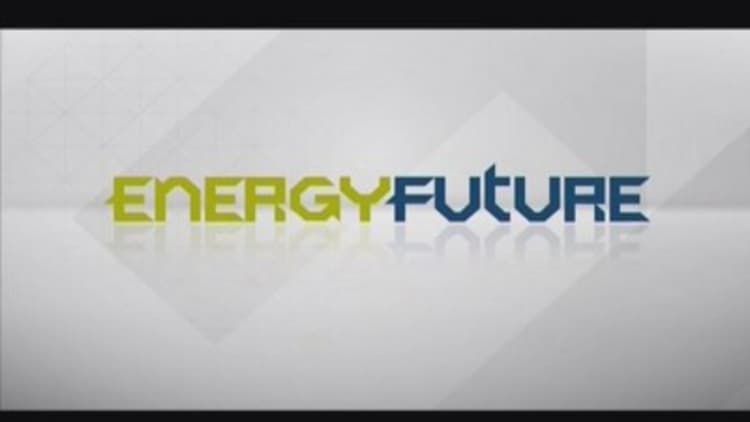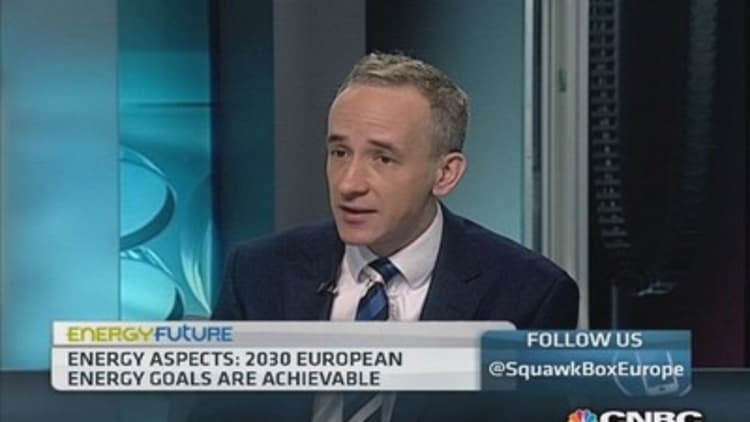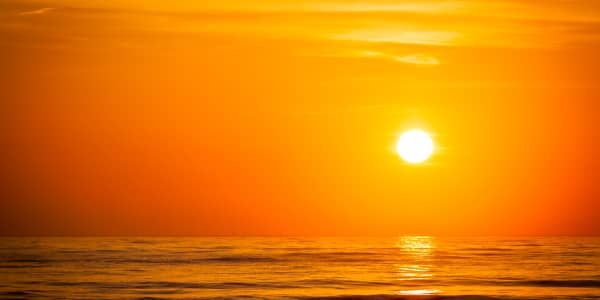
The crisis in Ukraine has highlighted the fragility of the European Union's energy security. Currently, the 28-country group imports around 30 percent of its gas from Russia – a level that has added urgency to the search for alternative sources of energy.
José Manuel Barroso, President of the European Commission, sought to reinforce the importance of Europe's energy independence earlier this month.
"Discussions on Ukraine also reflect the importance of a stronger and truly European energy policy – a policy that strengthens our energy security and our competitiveness and lowers our reliance on imported fossil fuels," he said in a speech at a meeting of the European Council in Brussels.
(Read more: For some, Algae is green gold)
U.S. President Barack Obama added weight to the argument this week. "I think that Europe collectively is going to need to examine, in light of what's happened, their energy policies to find other additional ways that they can diversify and accelerate energy independence," he said.
In a climate of political, military and economic upheaval, the idea of self-sufficiency through renewables is fast gaining traction. The European Commission has set ambitious targets for the continent, proposing that the EU reduce carbon emissions, to 40 percent below 1990 levels by 2030, while at the same time seeking to increase the proportion of energy produced by renewables to 20 percent by 2020.
And whilst such ambition is admirable, for some utility companies more clarity is needed.
(Read more: Trouble with trash? Try turning it into fuel)
"First of all, we don't know what to invest in," Peter Terium, CEO of RWE, one of Europe's leading gas and electricity companies, said in a report for CNBC's Energy Future.
"How… [many] renewables do we need? How much CO2 reduction do we want to achieve? What about coal, what about gas? That's not clear, so we don't know what to invest in. Secondly, we don't have the money to invest in those things," he added.
For Dr Doug Parr, Greenpeace UK's Chief Scientist and Policy Director, this switch in emphasis from fossil fuels to renewables has caught some suppliers off guard.

"The big energy companies have invested heavily in fossil fuels, but have failed to anticipate the transformation in the market that's gone on, which includes a lowering of demand and a renewable energy revolution, which has undermined the price that they're getting for their power," he told Energy Future.
(Read more: We've seen the future and it's sustainable)
"As a consequence they're simply not getting the returns on their investment that they wanted to," he added.
With the energy market seemingly in a state of transition, opportunities for smaller businesses to exploit the renewables market are opening up. According to Greenpeace and Trend Research, in Germany only 4.9 percent of the country's renewable industry is owned by its 'Big Four' energy companies – E.ON, Vattenfall, EnBW and RWE.
"The companies that are filling the void in terms of new investment are often small ones," Parr said. "We can see the structure of ownership being completely radicalized by the renewables revolution and the utilities just don't seem to be keeping up," he added.




